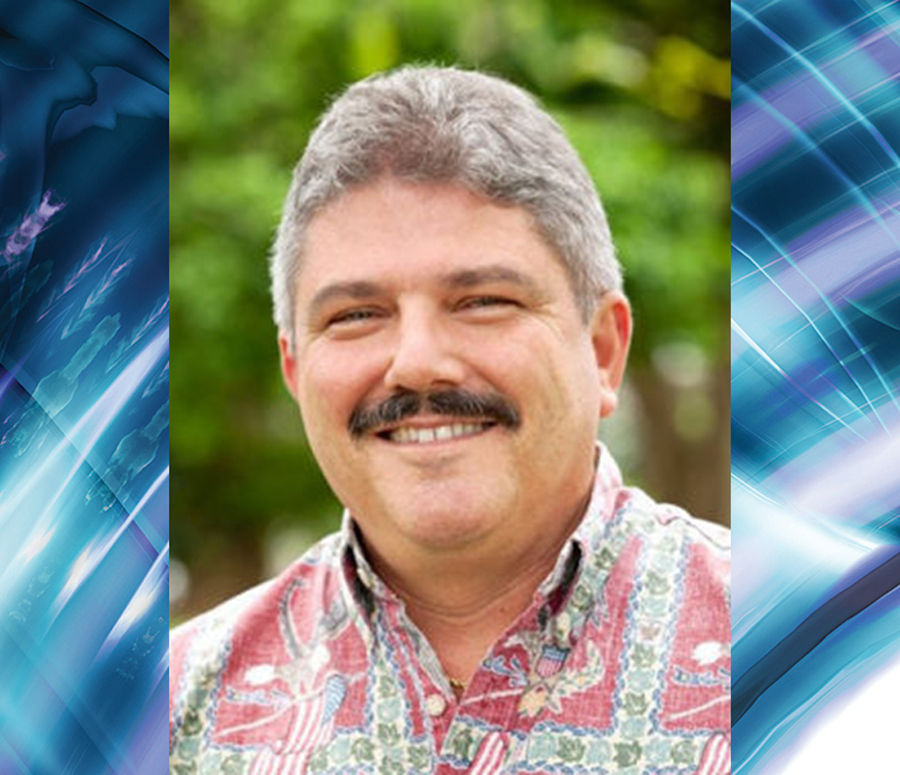LIHUE — Council Chair Mel Rapozo didn’t pull punches during an overview of the county’s budget during the Lihue Business Association’s meeting at Duke’s Canoe Club Thursday morning. “This year was obviously a complex year. It was not a simple
LIHUE — Council Chair Mel Rapozo didn’t pull punches during an overview of the county’s budget during the Lihue Business Association’s meeting at Duke’s Canoe Club Thursday morning.
“This year was obviously a complex year. It was not a simple budget to work, for many reasons,” Rapozo said. “We have seven independent individuals on board with seven, different reasons or ideas of how things should be done. But at the end of the day, we have to do what’s best for the entire island.”
Friday, Mayor Bernard Carvalho Jr. returned the county’s budget proposal unsigned, although Rapozo said the operating budget will still take effect July 1.
While discussing the specifics of the budget, Rapozo expressed his frustration with legislators regarding their inability to create an open dialogue between the counties and the state when it came to discussing pressing matters, such as the Transient Accommodation Tax.
“Since 2010, when the cap was implemented, Kauai has lost $77.5 million in revenue,” he said. “That’s significant for this island … We pay for that. We should be able to keep that.”
Rapozo assured the 20 people in attendance that he and the county’s delegates pushed hard to raise the cap on TAT, but were unsuccessful for reasons beyond their control.
“We had hoped for more than our capped amount of $103 million and we lobbied hard for that. As TAT revenues rise throughout the state, it’s not fair for the state to cap the county’s budget. It just doesn’t make any sense,” he said. “Our efforts were obviously not successful, and it was reduced to $93 million. We actually lost $10 million with our aggressive push. Some of it is because they were upset with us.”
Rapozo broke down how much money Kauai is missing out on because the cap and restrictions on the TAT. He said that a half percent increase of the general tax would result in a $25 million boost in revenue. However, those revenues are restricted to transportation and roads — something Rapozo opposes.
“I cannot get a legislator to answer my question of why: Why isn’t that unrestricted? The money is generated here on Kauai, by the locals, and why can we not spend that money on parks or anything that the county needs?” he said.
Rapozo said the TAT should be fairly distributed between the counties.
“If you look at the cap amount and see what our portion would be if the cap was removed, instead of getting $14.9 million we would be getting $30.7 million. That’s a lot of money that can be used on this island for roads, parks, everything else that we need.”
Mark Gregory, president of IT Kauai Inc., was in attendance to hear what Rapozo had to say about the TAT and why the mayor didn’t sign the budget last week. He was left with the impression the mayor made the right call.
“I understand his reason of not wanting to touch the rainy day fund and it’s still gonna pass in the end,” he said. “The mayor will get what he wants and the council will get what they want. And I think that’s OK.”
What stood out to some attendees was how much of the operating budget is consumed by personnel wages and benefits. Rapozo said that out of the $201 million operating cost, $170 million goes directly to personnel, leaving only a fraction of the budget to address fixing roads and cleaning up parks.
Palmer Hafdahl, LBA vice president, was surprised to see how money was being allocated across departments of local government.
“It was great getting an overall view of why the dollar is so subjective, but the real solutions have to do with dealing with the culture of our community, unions and collective bargaining in a way that is helpful for the community and individuals,” he said. “We all share in creating a more cohesive community and living in our budget.”


